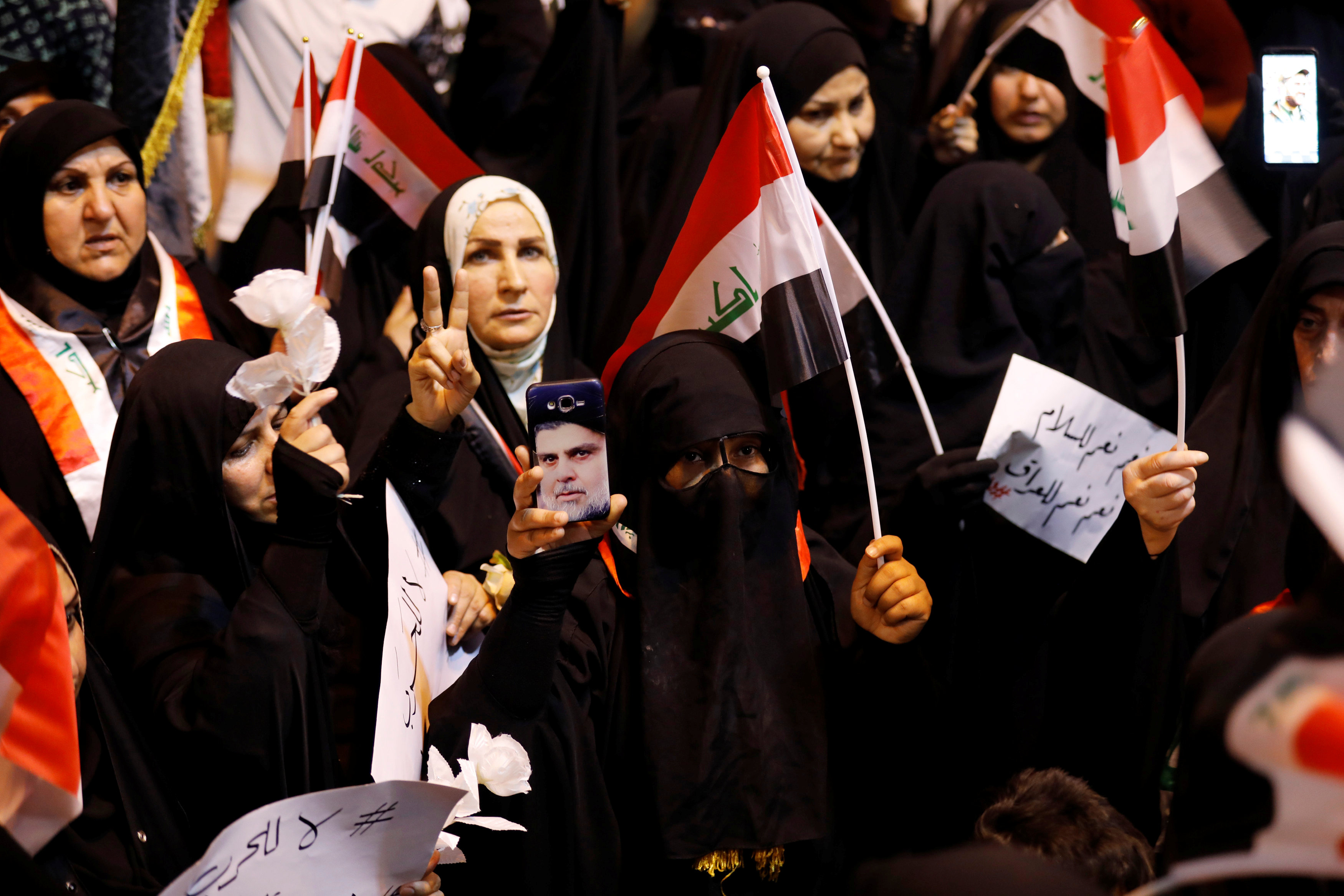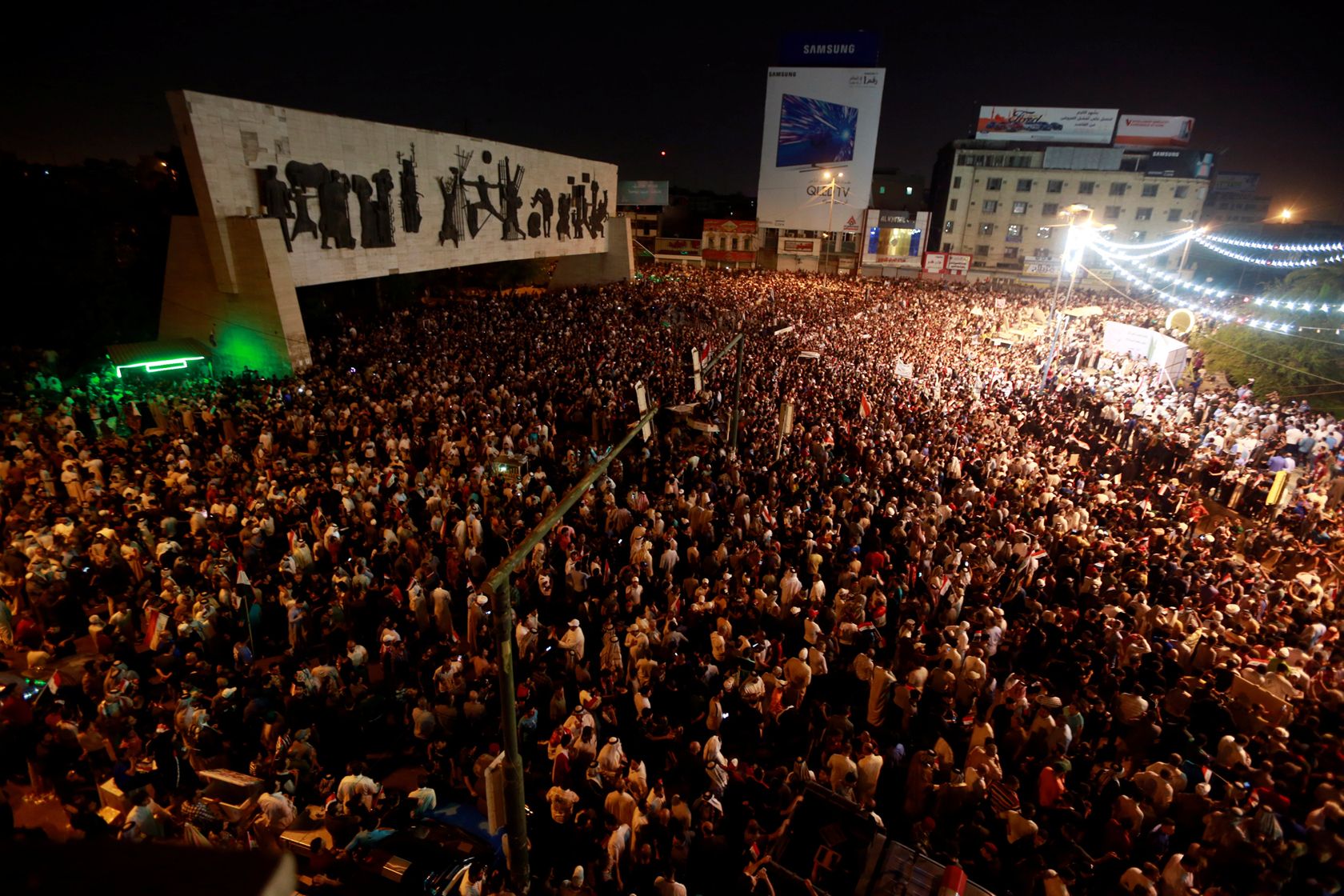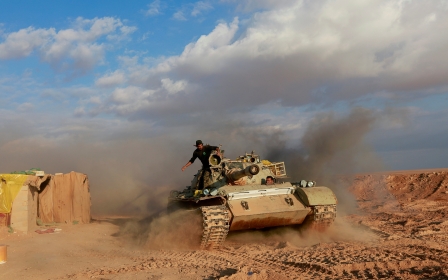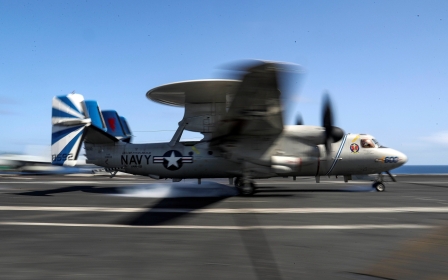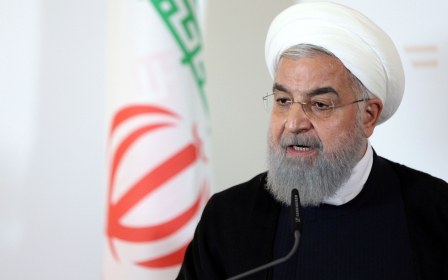Thousands of Iraqis protest against potential war between US and Iran
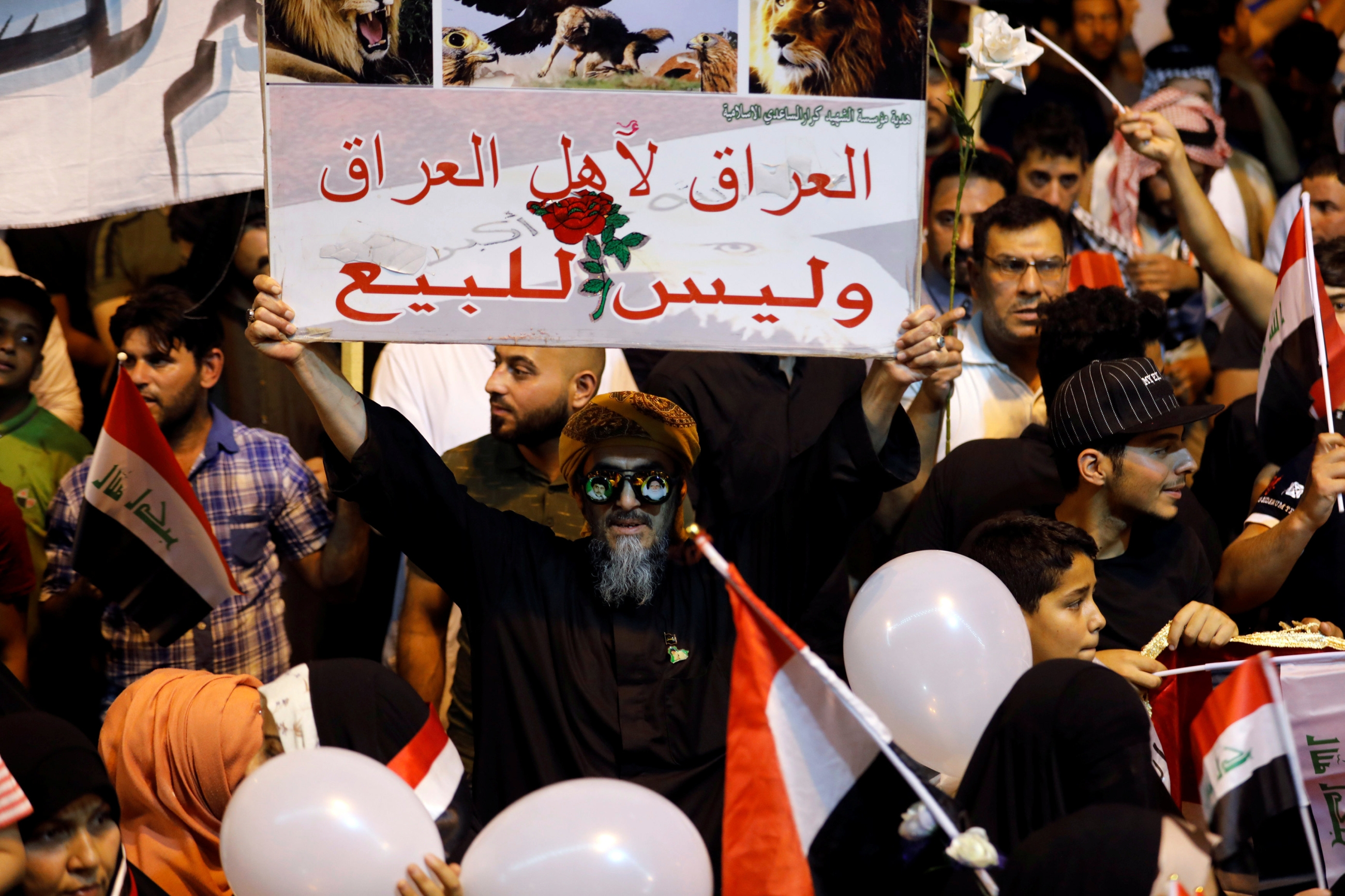
Thousands of supporters of a Moqtada al-Sadr, a high-profile Iraqi Shia cleric, demanded the country's government stay out of any potential conflict between Iran and the United States.
Protesters chanted "no to war" and "yes to Iraq" in central Baghdad and the southern city of Basra, Reuters reported on Friday.
Iraqis worry about being caught up in an escalation of US-Iran tensions, which spiked earlier this month when President Donald Trump's administration said it would send additional forces to the Middle East to counter alleged Iranian threats, including from Iran-backed militias in Iraq.
"We've just recovered from Islamic State. Iraq must not be used as a base to try to harm any country. America doesn't want Iraq to be stable," protester Abu Ali Darraji told Reuters.
New MEE newsletter: Jerusalem Dispatch
Sign up to get the latest insights and analysis on Israel-Palestine, alongside Turkey Unpacked and other MEE newsletters
Sadr, whose political bloc won the most seats in Iraq's parliamentary election last year, is not considered a close ally of either the US or Iran.
The United States once described Sadr as the most dangerous man in Iraq, and designated his militia at the time, the Mehdi Army, a bigger threat to its forces than al-Qaeda during an insurgency against US troops after their 2003 invasion.
Sadr campaigned last year on a platform of Iraqi nationalism, opposed to both US and Iranian influence in the country.
Amid rising US-Iran tensions, a rocket was fired last week into Baghdad's fortified Green Zone, which houses government buildings and diplomatic missions, but caused no casualties.
A previously unknown armed group has claimed responsibility for the attack, claiming it was in retaliation for US President Donald Trump pardoning a soldier in the 2009 killing of an Iraqi detainee.
In a statement released to a number of Iraqi news outlets, which was cited by MEE, a group calling itself the Operations of Martyr Ali Mansour said it had fired the Katyusha rocket into the fortified area housing the US embassy.
The US had initially suspected the rocket attack came from various Iran-backed armed groups in Iraq, including the Asaib Ahl al-Haq (AAH) and Kataib Hezbollah, although they were quick to disavow responsibility and issue condemnations.
The attack came after Secretary of State Mike Pompeo warned Iraqi leaders that if they failed to keep in check powerful Iran-backed militias, Washington would respond with force.
US sources have told various American news outlets that they had seen militias positioning missiles on dhows, which are small wooden boats, within striking distance of US naval positions.
After pulling out of Iran's 2015 nuclear deal with world powers, Trump restored US sanctions on Iran last year and tightened them this month, ordering all countries to halt imports of Iranian oil or face sanctions themselves.
Iraq has said it will send delegations to Washington and Tehran to help calm tensions.
Middle East Eye delivers independent and unrivalled coverage and analysis of the Middle East, North Africa and beyond. To learn more about republishing this content and the associated fees, please fill out this form. More about MEE can be found here.


